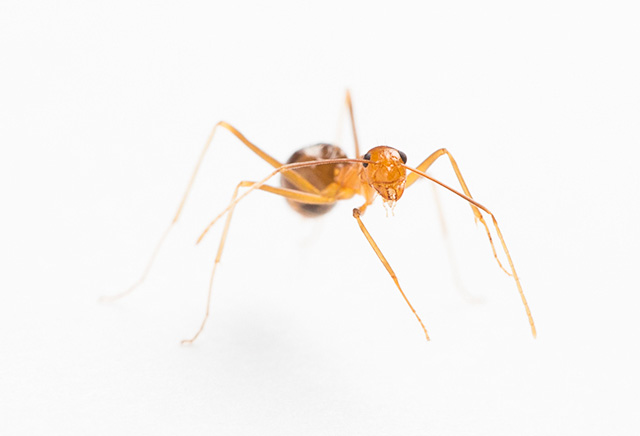Yellow crazy ants are spreading rapidly in areas around Townsville, with no state or federal government support to control and eradicate this dangerous invasive species. The infestations are so severe in the region they are now entering people’s homes and backyards and decimating local wildlife.
‘Yellow crazy ants are one of the world’s worst invasive species. They attack prey by spraying acid, which makes them such an effective killer. They can literally turn an entire forest silent by wiping out the majority of small animals that live there,’ Invasive Species Council conservation director James Trezise said.
‘The infestations around Townsville are out of control and likely much larger than currently mapped. We’ve seen these invasive ants entering homes, taking over backyards and impacting people’s quality of life. It is vital that we get these infestations under control and eradicated, not only to safeguard the environment but also to protect the community and the regional economy.
‘Control has been left to Townsville City Council, but the council, despite their best efforts, doesn’t have the resources to tackle an infestation of this scale.
‘It is critical that both the federal and state governments invest in an eradication program in Townsville, similar to the successful program that is being rolled out in Cairns by the Wet Tropics Management Authority.
‘The Townsville infestations are moving closer to the Wet Tropics World Heritage Area and sites of exceptional importance for biodiversity. Yellow crazy ants are currently near Mount Elliot, and if they get there it will likely mean the extinction of endemic species, such as the Mount Elliot nurseryfrog, that occur nowhere else on Earth.
‘We’ve already seen yellow crazy ants emerge on Hamilton Island. They are a species that can seriously impact the tourism and agriculture sectors as well as real estate.
‘Unless action is taken this problem will only get worse. If yellow crazy ants are allowed to spread throughout the region the consequences for the environment, the economy and local communities of North Queensland will be severe,’ Mr Trezise said.








